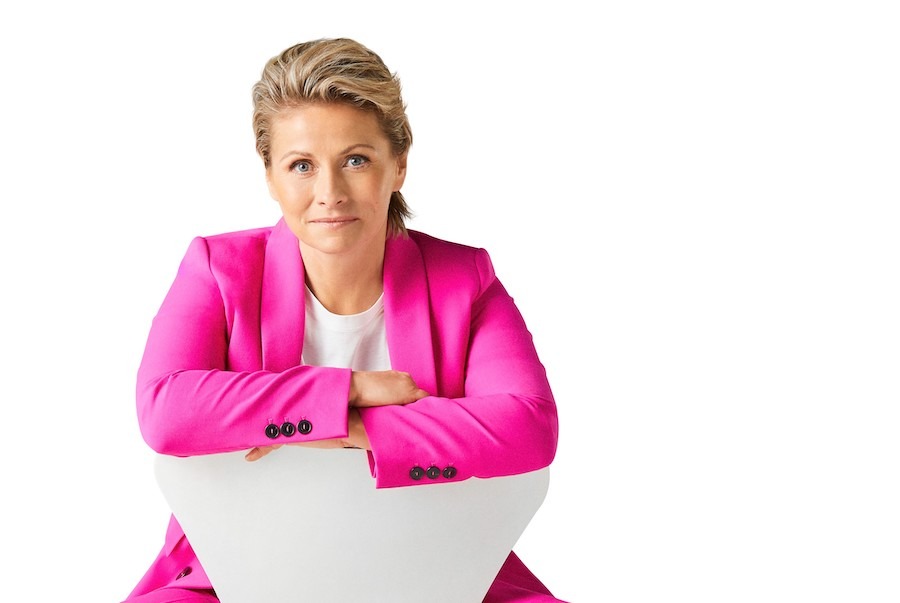Sam White had expected to be in Australia during the launch of her female-centric Australian car insurance company, Stella Insurance.
But of course like everything else in business and life right now, 2020 turned those plans upside down.
So she’s been managing the launch from her home in the UK, with general manager Renee Cosgrave leading the new business locally and comedian and former Triple J presenter Gen Fricker creating a public face for the new insurance brand.
Sam launched her first insurance brand at age 24 and has gone on to launch numerous businesses in the UK and in the United States. She’s employed hundreds of people to create businesses turning over $35 million in revenue and has long advocated for more women in leadership in the financial services sector.
She also believes that with so many financial services products designed with men in mind — much like how airbags were tested on male-formed test dummies — there’s an excellent opportunity to start again with products that put women first.
“As an entrepreneur, I see a wider opportunity to design products for women,” she says. “And if we can design products in an industry that’s typically been so male dominated, like insurance, then it could have wider implications to do so elsewhere.”
In Australia, she’s starting with car insurance. Stella, underwritten by QBE, wants to appeal to women who feel under-serviced by their car insurer and reward women for their typically higher risk profile.
They also want to specifically address women’s needs: including by offering coverage for damage that arises from a domestic violence situation.
And they’re offering other elements, such as $2000 in baby gear cover in addition to cover for child seats and personal effects.
Women account for half of road users and the majority of household purchasing decisions, yet car insurers don’t do enough to specifically appeal to women, says Sam.
One thing they really hope to do differently is to make the brand exciting to engage in — with insurance being one of those products users have been conditioned to typically avoid beyond the necessity of taking it out. They are building a community that aims to empower and support women, and will even invest some of their profits with female entrepreneurs.
Know your weaknesses
Asked how she has managed to set up multiple businesses, Sam offers some advice to all entrepreneurs: get to know your weaknesses, because you can find someone to help you manage them.
She says that in her experience, she knows her strengths have been in sales and marketing.
Having a narrow area of expertise can actually be beneficial, as long as you’re willing to ask for the help you need.
“At no point do I look at our General Manager and say ‘get out of the way I can do this better, because I can’t’! The acceptance of somebody’s abilities makes it so much easier on you.”
Sam also expressed concern for female entrepreneurship and leadership during COVID-19, noting that in the UK she’s seen numerous senior women leave the workplaces due to the impact of taking on the additional home and remote learning responsibilities.
She’s concerned about businesses and managers facing fatigue on offering sympathies to working parents.
“We like to think everyone’s tolerant of kids and home life in the background, but then there’s the prevailing instinct from businesses that we are under distress and duress. Businesses are concerned they won’t survive COVID, so their leaders are often looking to crack down on hours.”
And when it comes to funding female entrepreneurs, she says that with an institutional bias in lending already occurring, the current situation may exacerbate the problem.


